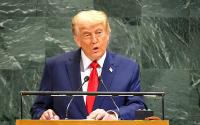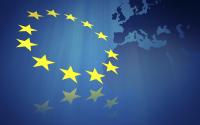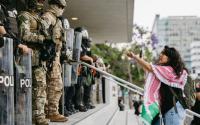17 May 2007
|
She seems remarkably generous about her kidnappers: "From their point of view, what else could they have done?" In fact, she does not even refer to them as kidnappers: "I don't really think of it as hostage-taking because they didn't take us for political or financial gain. It was purely for security reasons: they wanted to know who we were." But when she writes about it in her book, Don't Shoot the Clowns, her fear is palpable.
How to describe Wilding? She's 32, a mother and a newly qualified barrister, who lives in Brighton with her partner. But she is also an activist, blogger, unembedded journalist, documentary star, human rights worker and a clown with a talent for making balloon animals. "Jo was the only one of us foreigners in Iraq who I was absolutely sure was doing something useful," says Naomi Klein, the author of No Logo. The journalist and film-maker John Pilger is another fan. "Living with families and without a flak jacket, she all but shamed the embedded army of reporters in her description of the atrocious American attack on an Iraqi city," he wrote last year. He said her dispatches from Iraq, posted on her blog, were "some of the most extraordinary I've read". The writer, director and academic Jonathan Holmes has written a new play, Fallujah, which draws heavily on Wilding's experiences, among others.
Wilding and her friends Jenny, David, Ahrar and Donna were leaving Fallujah when their car was fired at by US marines. They were forced to turn back into the path of the mujahideen, and one of the rebel fighters jumped into their car and directed them to a nearby Jeep. Forced to get out of the car, some were tied up and the group was separated, but all were driven to the same house, where they were individually interviewed and watched by armed guards. Did she think they would kill her? "I wasn't convinced they were going to kill us, but I wasn't convinced they wouldn't, either. This was before anyone had been beheaded, but it was frightening. It was also terribly boring. We had nothing to do - we were just sitting there in a room waiting, not knowing how long we were going to be there or what was happening. Also, this was Fallujah - it was being bombed and houses were being raided." Wilding's story checked out - one of the others had a video camera with footage of the circus and Wilding on stilts, dressed as a clown - but she still spent the night wondering how and when the kidnappers would kill them. Then, in the morning, just as suddenly as they had been captured, they were allowed to go.
They had been in Fallujah delivering supplies - disinfectant, needles, bandages, food, water - to a hospital in the US-controlled part of the city and were using an ambulance to bring injured people to a makeshift hospital in a small clinic in another area of the city. There, with no anaesthetic and where bags of blood were kept in a fridge and warmed up under the hot tap in a bathroom, a young boy was brought in. "He had been shot in the head. His family had been trying to get into the car to flee and they [US soldiers] shot him. I think they had just been told to shoot at anyone. Certainly they had been told that ambulances had been carrying weapons and I know from my own experience that they were shooting at ambulances." Wilding says she was in an ambulance on their way to get to a pregnant woman who had gone into labour too soon, when marines shot at the ambulance, through the windscreen. A tyre was shot out and the ambulance driver screeched back in reverse to the hospital. With the ambulance out of action, they never reached the woman.
Wilding first went to Iraq in 2001. After hearing an activist give a talk about the effect of the sanctions placed on Iraq, she had been involved in the campaign against them. In 2001, she was arrested after throwing rotten fruit at Tony Blair at a protest, but much of her campaigning involved acts of solidarity such as sending over vitamins. They were token acts: even if you were able to send vast quantities, vitamins would not make much of a difference in a country whose economy had been crippled by the sanctions and whose people had a desperate need for food and medicine. "In the end, I felt I needed to go there and see for myself what was happening to people. Also to take things, such as aspirin, medical journals, a medical training CD-rom. Doctors were faced with new illnesses they couldn't treat and they weren't getting up- to-date medical information."
Her visa allowed her to stay for only 10 days, but in that time she saw a great deal and struggled to make sense of it. "I had read a lot about it but it can't prepare you for the reality. There were consumer goods on the street, but there were things you just couldn't get, such as medicine. You could buy fresh fruit but it was way beyond most people's income. A lot of people were completely dependent on the food ration, and they would sell part of their food ration to buy medicines or to pay for bus fares. Going into the hospitals, I knew I was going to see a lot of children who were desperately ill, but I don't think you can prepare for what it feels like when you're there. A child went into a coma in front of us. He had leukaemia and the doctor said they just didn't have enough platelet bags to treat him. His mother was pinching his cheek and slapping his face, trying to wake him up and howling with grief. There was this stick-thin nine-month-old baby and her body was just the shape of her skeleton. You could hear her rattling breathing."
The attacks of September 11 happened shortly after she came home, and in 2003, when it became clear that Iraq would be invaded, Wilding decided to go back. She went with Julia Guest, a film-maker whose documentary A Letter to the Prime Minister is about Wilding's trip. She decided to return there because she felt it was important that the voices of ordinary Iraqis were heard above the din of cruise missiles, cluster bombs and army and political rhetoric. "The mainstream news focused primarily on what was being said by military and political figures and not on what Iraqi people were saying, partly because it was so difficult for journalists to hear them. I was just writing about what happened day to day and putting it out on the internet." Her blog started out quite small, but soon thousands of people all over the world were reading it.
Wilding admits she was scared. "You go on a leap of faith. I didn't know what was going to happen, how long I was going to go for. I hadn't decided I was staying for the war, it was something to take as it came. I didn't know if I would be able to leave once it had started. You can imagine the rumour mill: everyone western is going to be hung off a lamppost, we're all going to be taken hostage ... every worst possible scenario. I had a conversation with a young Iraqi woman and she said, 'Why are you staying here? Most Iraqi people would leave if they had anywhere else to go.' But there were people who didn't have that choice and didn't have a voice that was going to be heard outside. The news covers the first house that's hit and maybe the second, but it stops being news when hundreds of houses are hit and so there's nobody to document the more mundane things. I think that's important. You can't talk about democracy and 'Do you agree with the war or not, did we do the right thing?' if you don't know what we actually did and what actually happened to people. I was just in one city and I talked to a fraction of the people who were affected but still, I think I was able to hear and then tell a lot of people's stories. The number of people who read the blog and responded to it backed that up."
She got the idea for the circus after seeing her friend Shane blowing bubbles for a boy they met in a hospital in Baghdad during the bombardment. His sister had been killed and the rest of his family injured when a rocket tore the upper storey off their house. "He followed the bubbles with his eyes and then he put out his hand and popped one and smiled. It wasn't going to heal the trauma he had been through, but that image really stayed with me," says Wilding. "The idea wasn't completely random - I knew that circuses had gone to other places during conflicts and it was a way of bringing a little bit of normality for a period of time."
But still, a circus in Iraq - wasn't that the last thing they needed? "They need medicine, blankets, decent food and basic security. They need to be able to go to school, they need everything. They don't need clowns. I remember really doubting it, thinking this was just the most stupid, patronising, trivial thing. But then you could see that it wasn't trivial, you see the children starting to laugh. I remember seeing these two men standing at the side of one show, hugging each other." The group of four clowns performed for street children and went to several schools and squatter camps.
The schools were in an appalling state, but nothing could prepare her for the squatter camps, crammed full of displaced families. They weren't classed as refugees because they were still in their own country and they did not receive aid. In one camp, 125 families were living without adequate food and water, shelter and medical care. There was no sewerage system. A two-month-old girl died because of the cold and a four-year-old boy had his legs badly burned from the open paraffin stove his family used in their shack built of breezeblocks and canvas; with no medical care, he lay there with his legs oozing pus and blood and riddled with infections. A young man had his fingers blown off because he would take bullets apart to sell the tiny bits of scrap metal.
"I was angry that there was all this money - the planes, bombs, guns, the contracts that were given to Halliburton - going to people who didn't need it. There were these children dying for lack of blankets and basic medicine and shelter," says Wilding, her voice rising with fury. "They were living around open sewers, without anything. How could you not be angry? They was always so much need and so little you could do that I was never thinking, 'I'm so clever, look what I've done.' It was always, 'Is that all you did?' People were always asking me to help on a more material level, for cooling fans, money for operations, all sorts of things. A woman at the camp asked for clean knickers and sanitary towels." Even with the £10,000 Wilding had raised for the trip, she could not meet every need, although she did help pay for the installation of drains and pipes in the camp.
She had been in Iraq for six months and westerners had increasingly become targets. Wilding realised she was putting herself and the people around her - drivers, translators, the groups of children that would gather round her wherever she went - in danger. She decided to come home. "There didn't seem anything more I could usefully do, let alone justify the risk that I was putting other people in."
What was it like to be back? "The overwhelming thing I felt was incredibly lucky. I would cycle to university, essentially in complete safety. I would come home to my safe house, turn on the light switch and know I'd got electricity, or turn on my taps and know clean water was going to come out.
"At the same time I was incredibly angry that that had been taken away from millions of people who had no control over what was happening. When I gave birth to my son [at home], I knew that an ambulance would be with me in minutes if I needed it. I should be able to take that for granted and so should women over there. I met one woman who told her daughters not to get pregnant because what happens if they went into labour at night and they couldn't get to hospital? There are refugees who are just living in this limbo where the best they can hope for is to stay alive. It's the most appalling disaster."
· Fallujah by Jonathan Holmes is at the Old Truman Brewery, London E1. A Letter to the Prime Minister will be screened at the Institute of Contemporary Arts, London SW1, on May 23. Don't Shoot the Clowns is published by New Internationalist, price £8.99.
 This image from Jo Wilding's book, Don't Shoot the Clowns, shows her in costume entertaining children south of Baghdad. Photograph: New Internationalist
This image from Jo Wilding's book, Don't Shoot the Clowns, shows her in costume entertaining children south of Baghdad. Photograph: New Internationalist 





